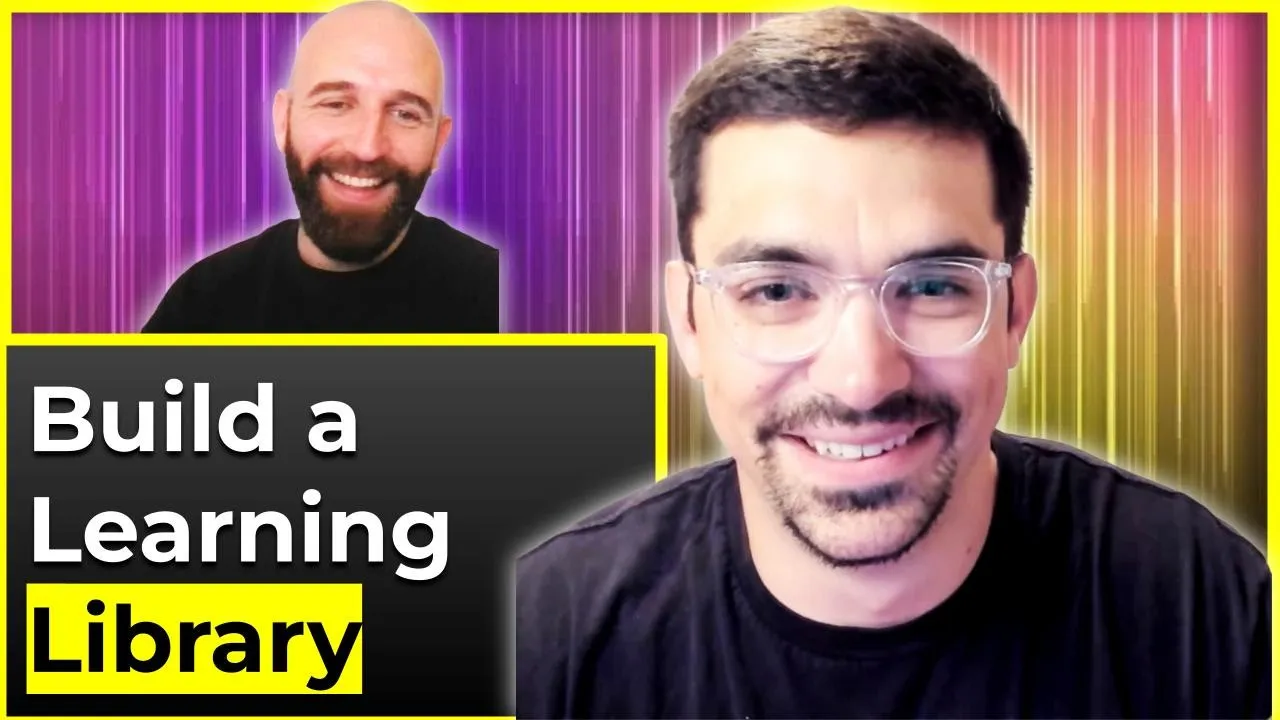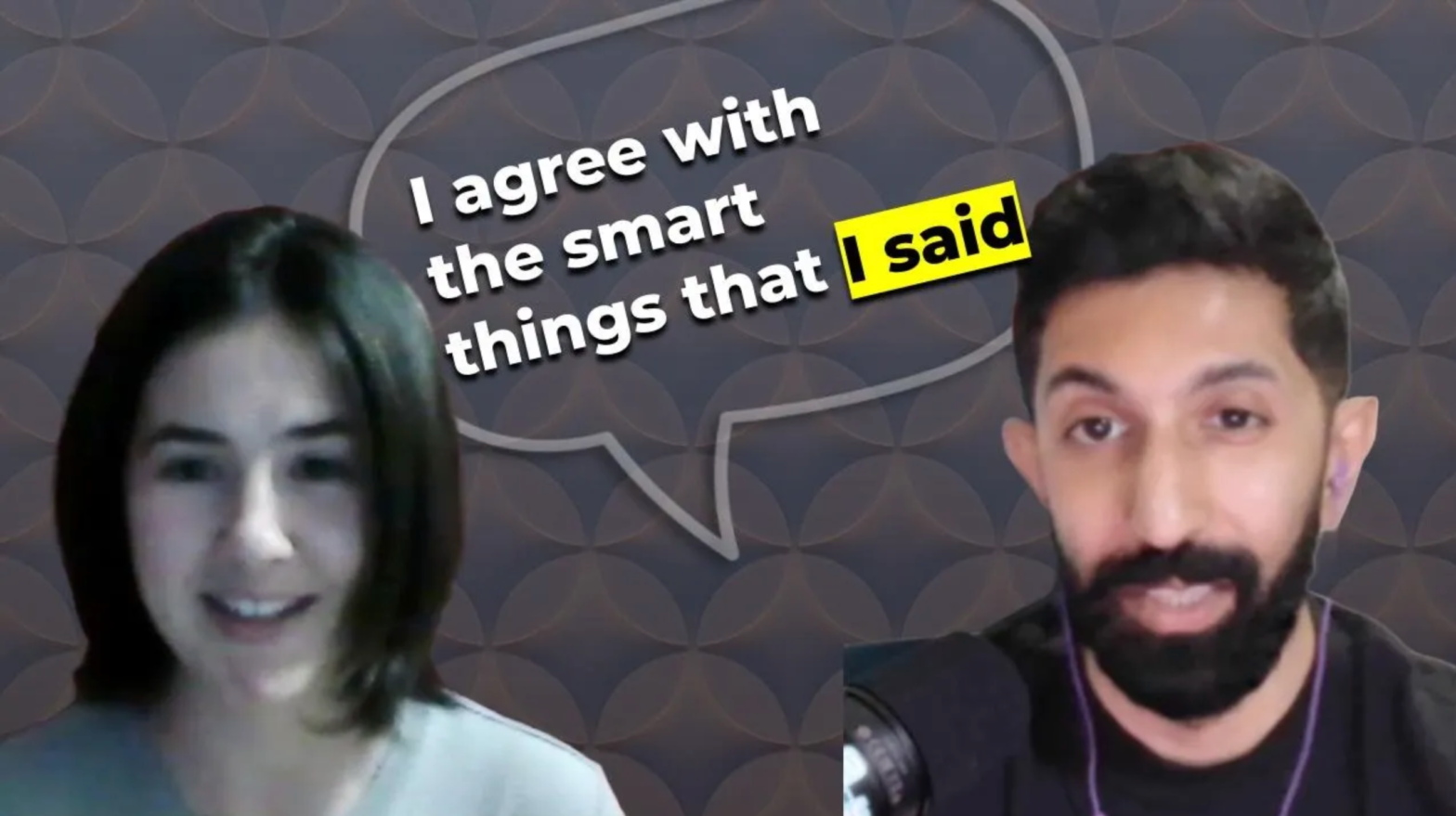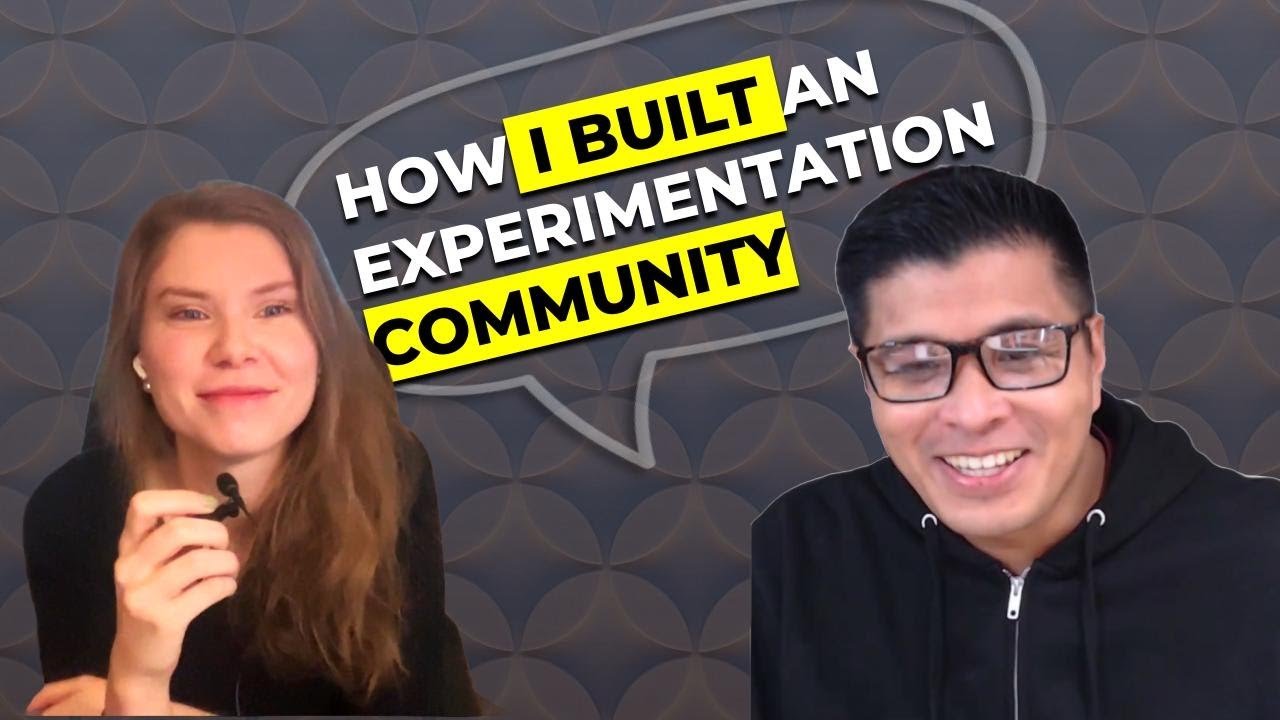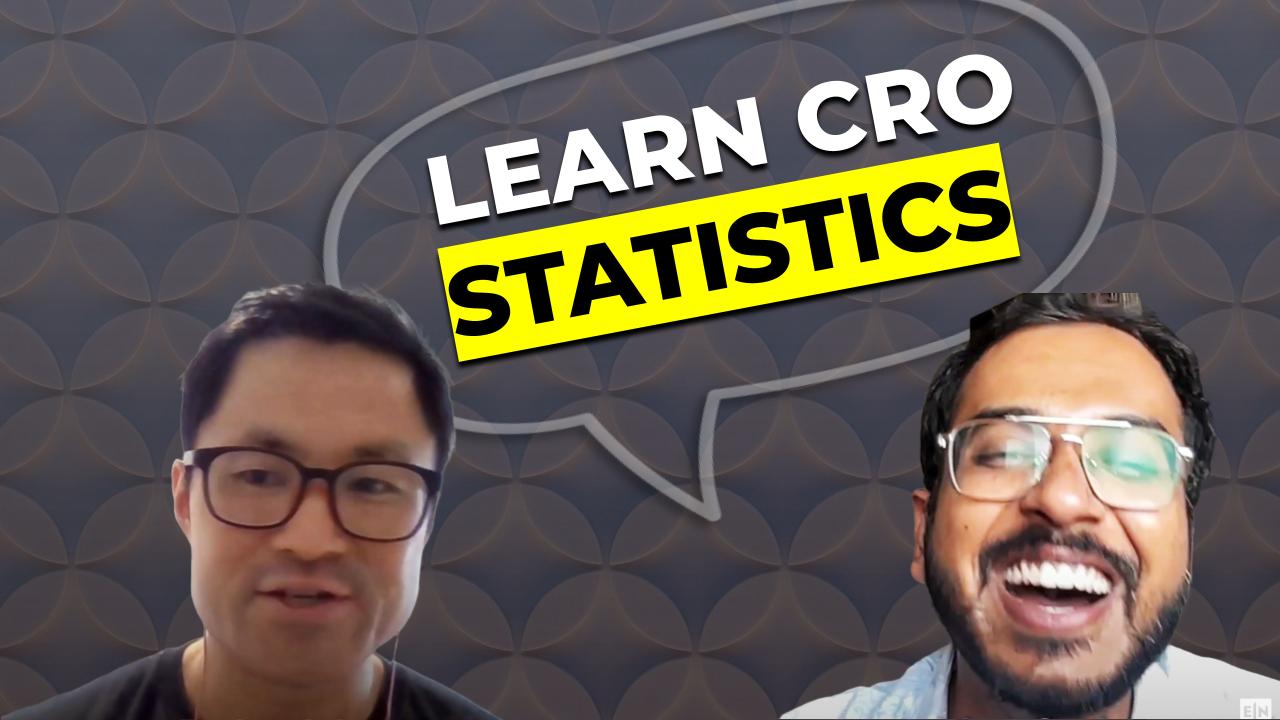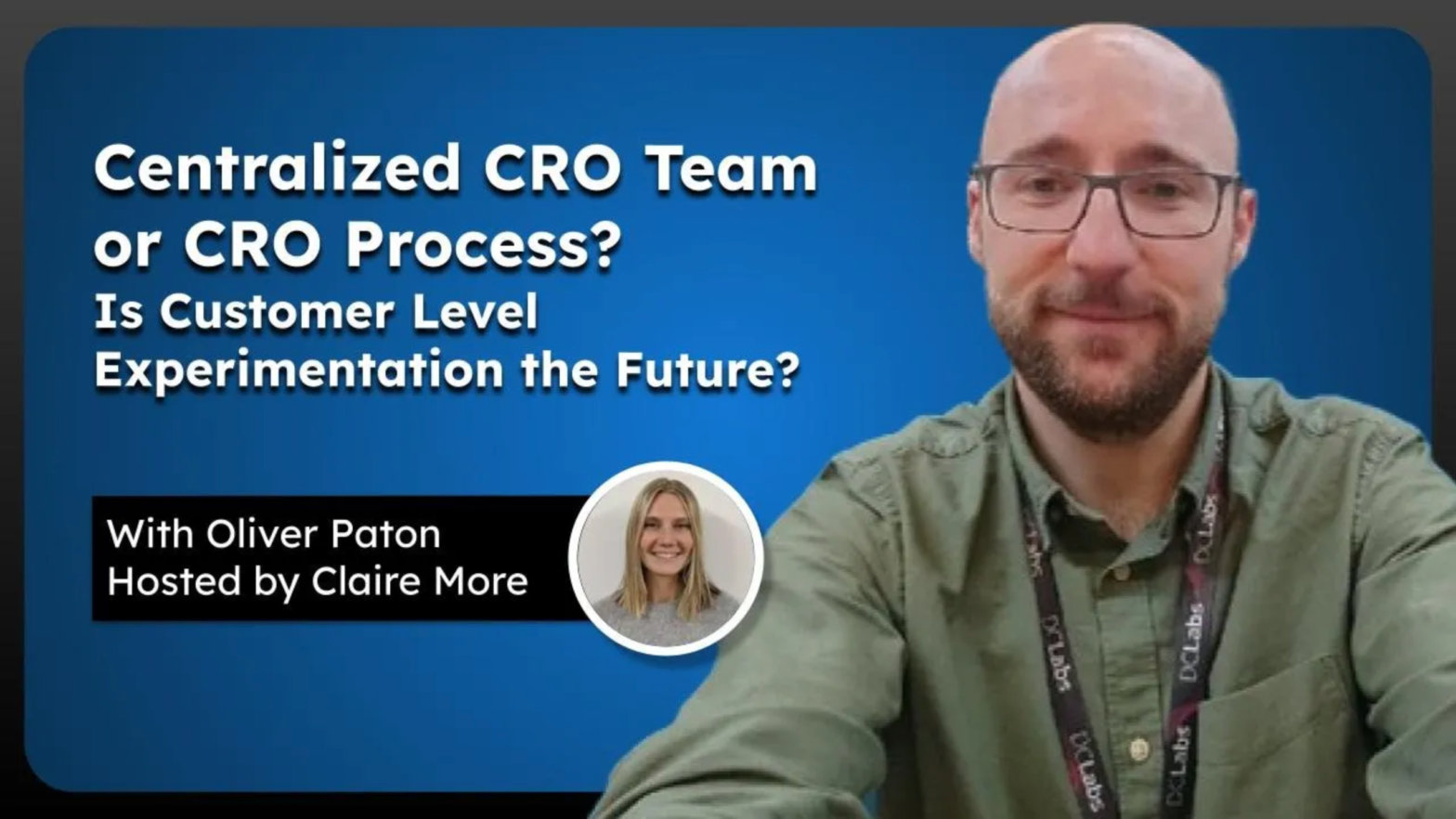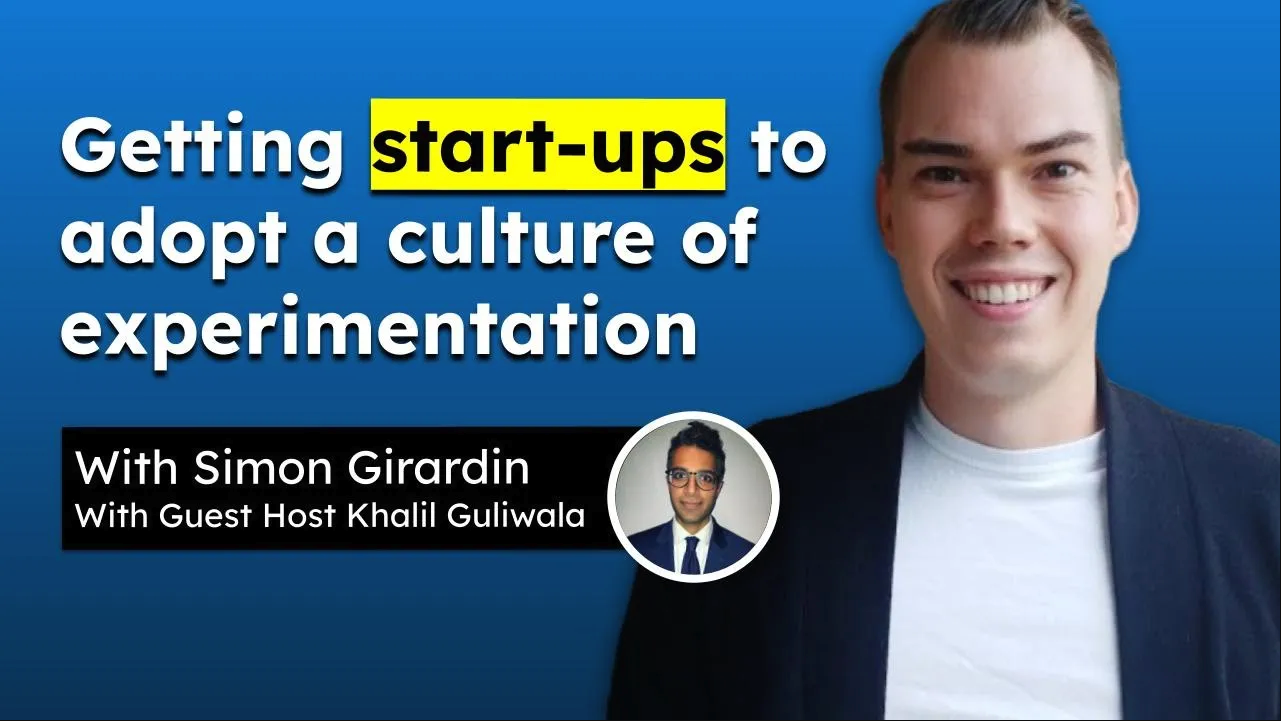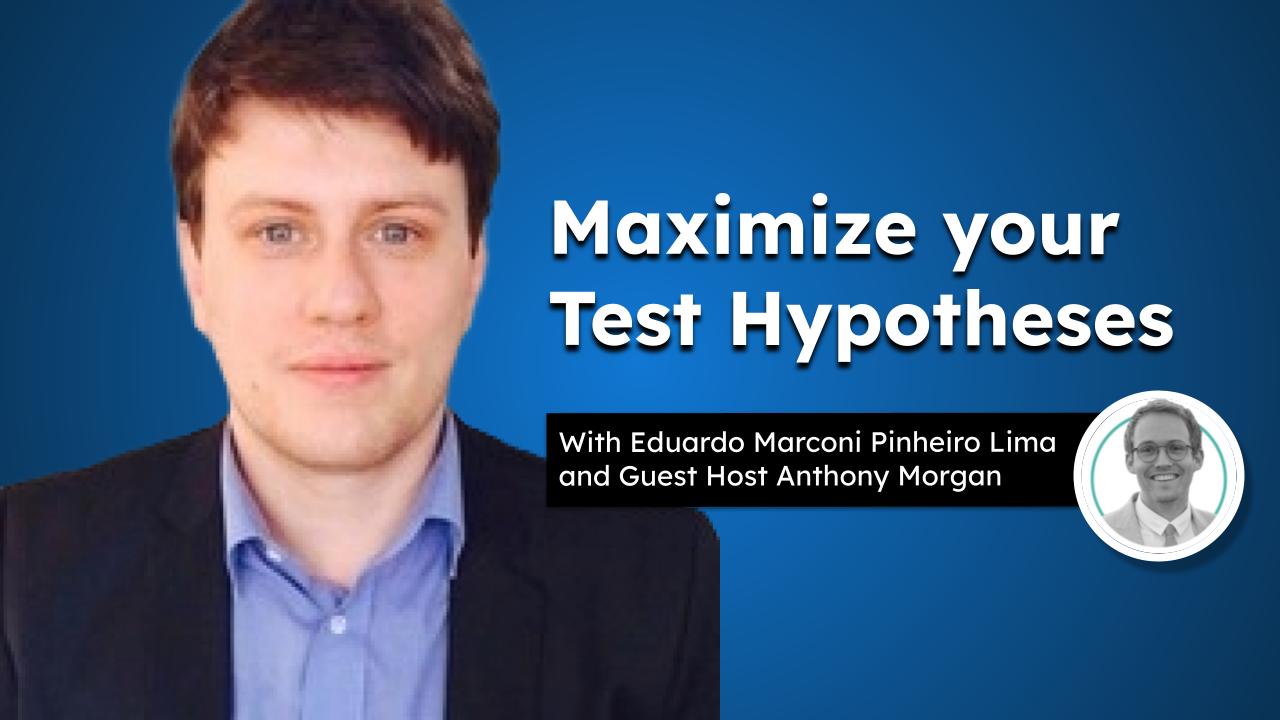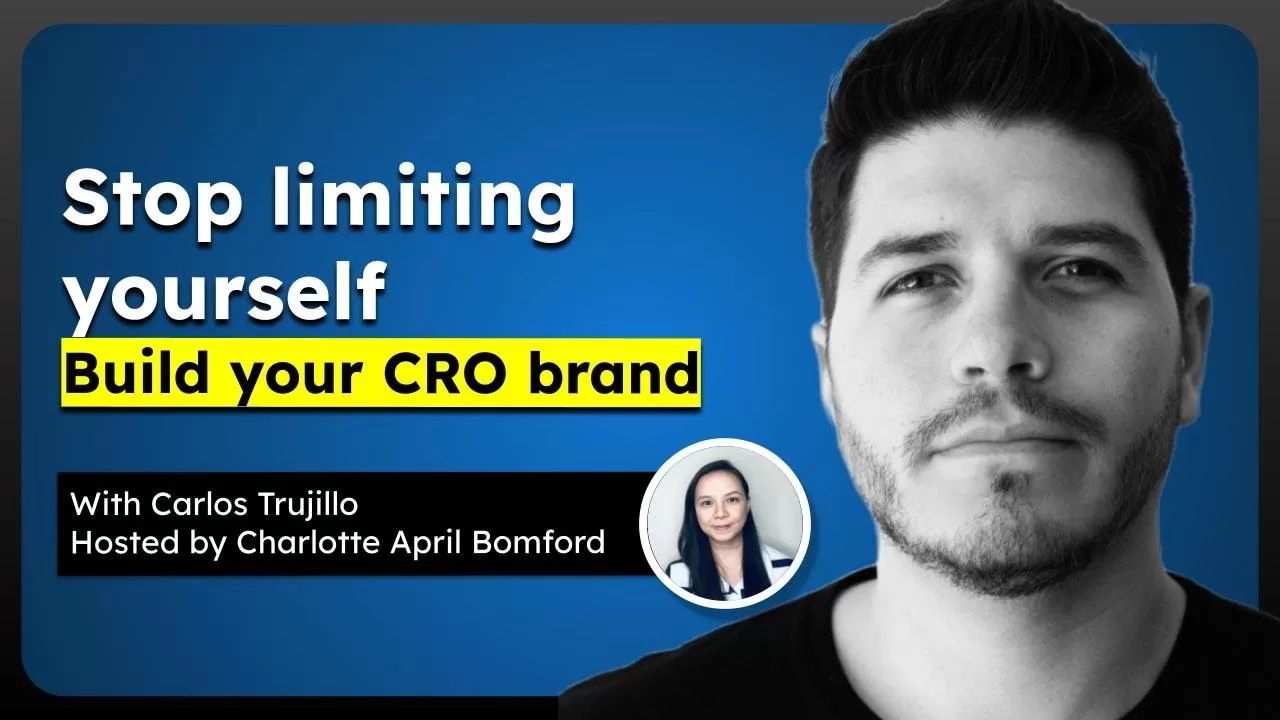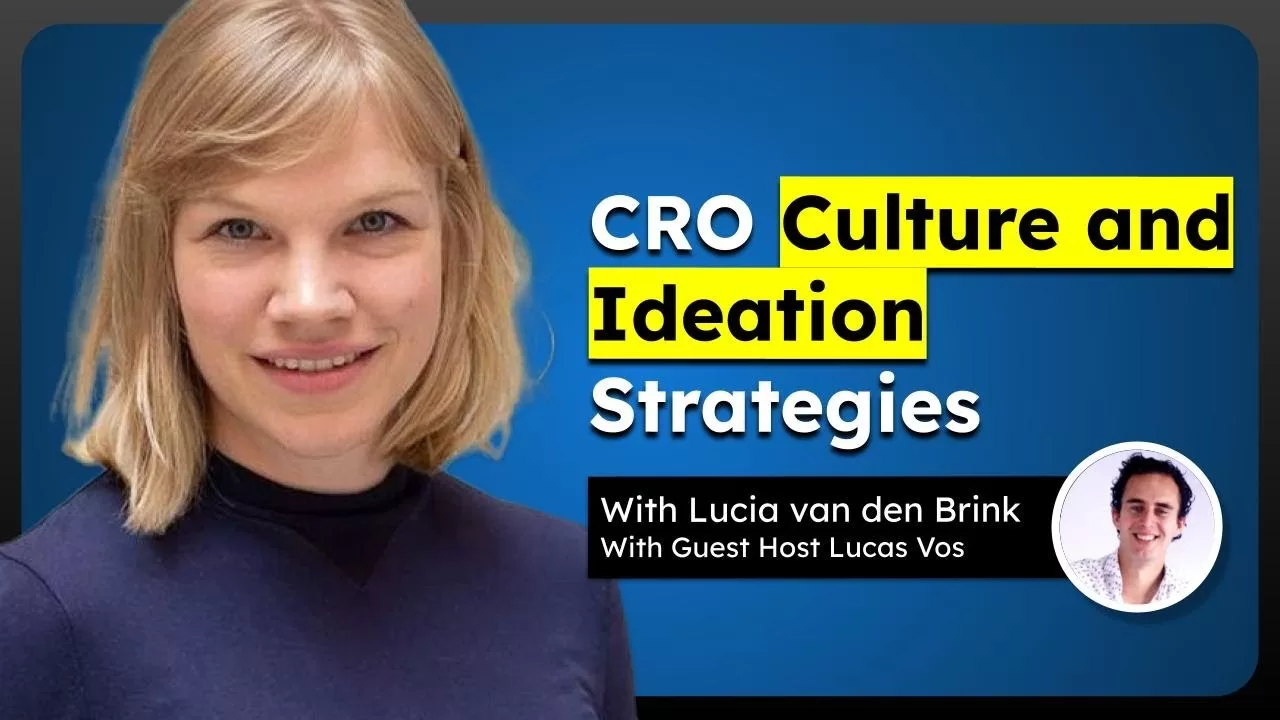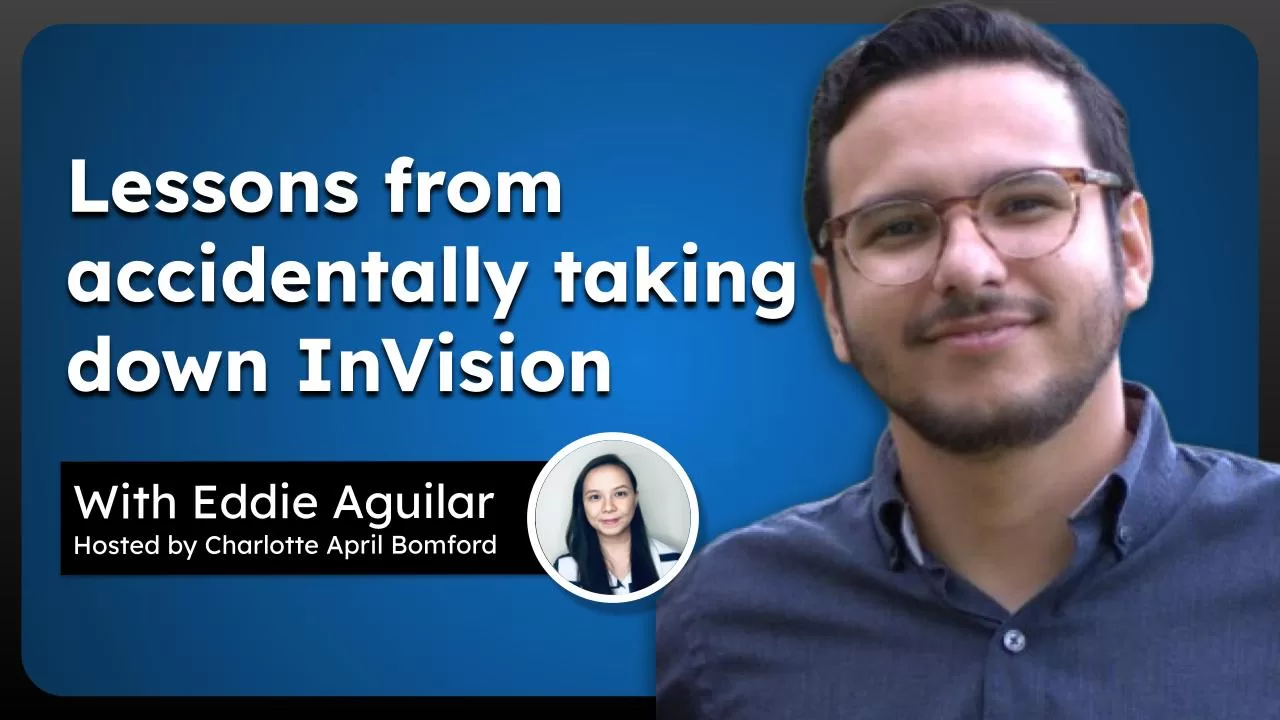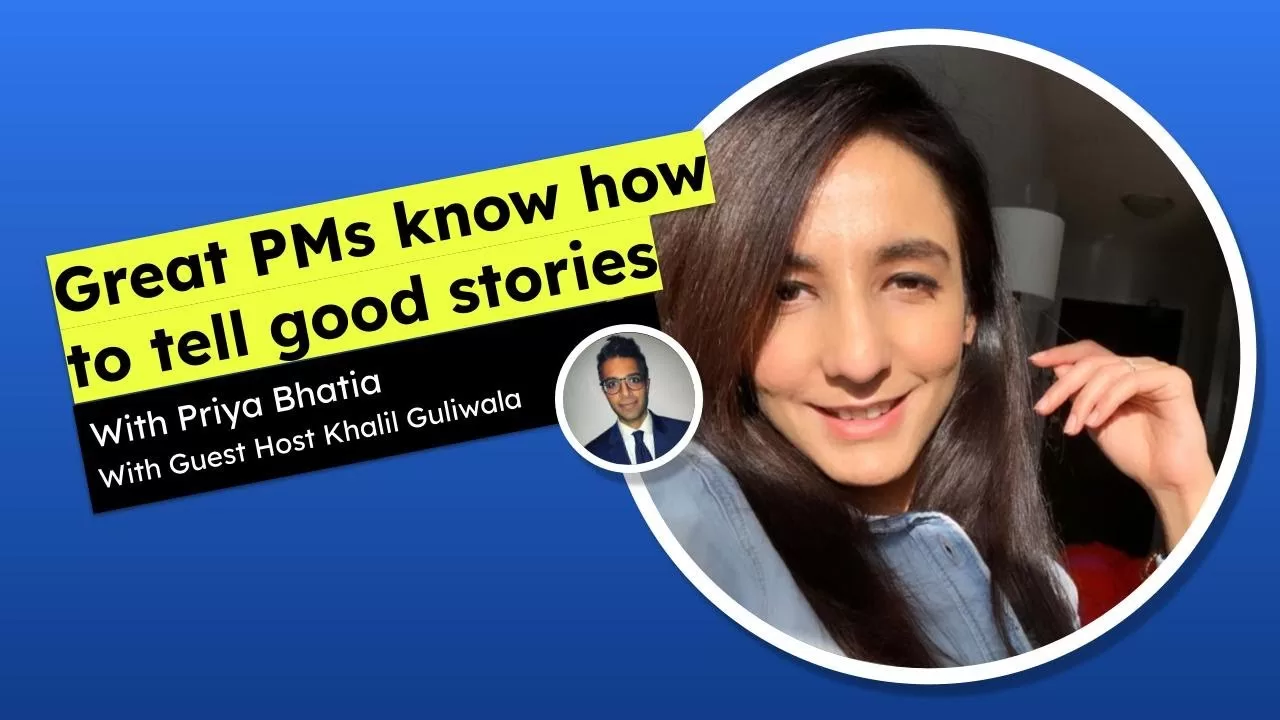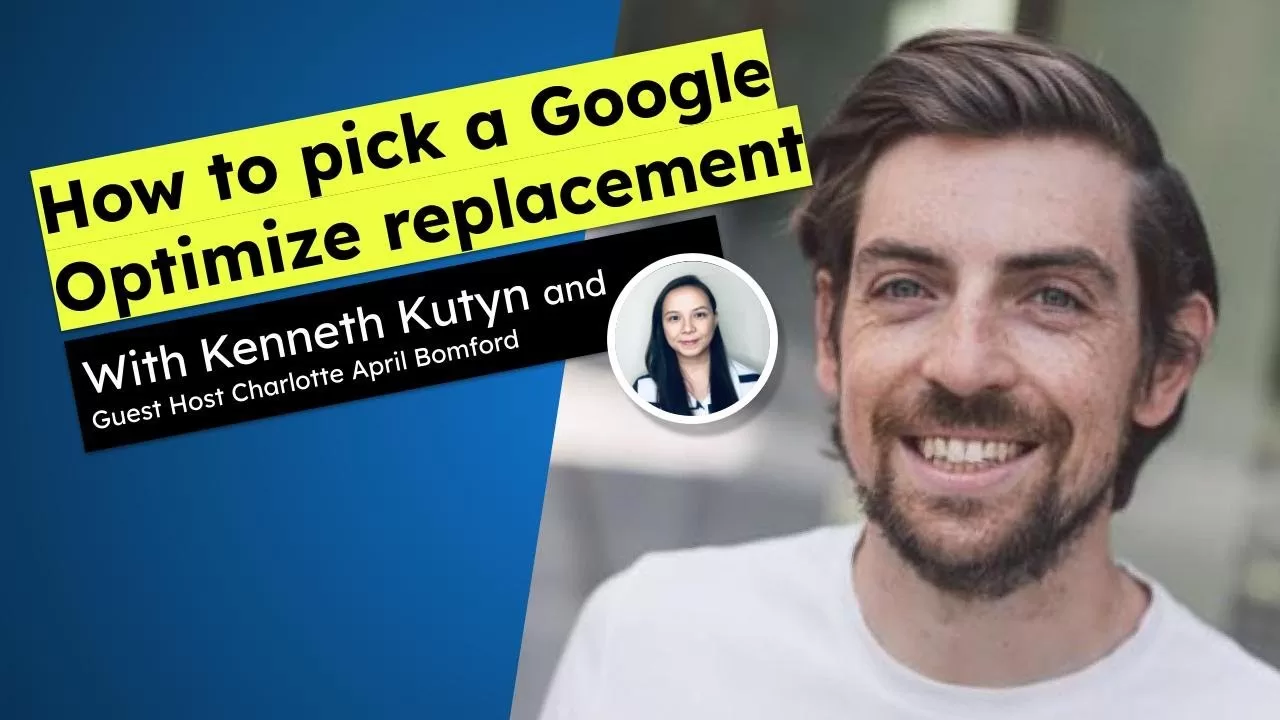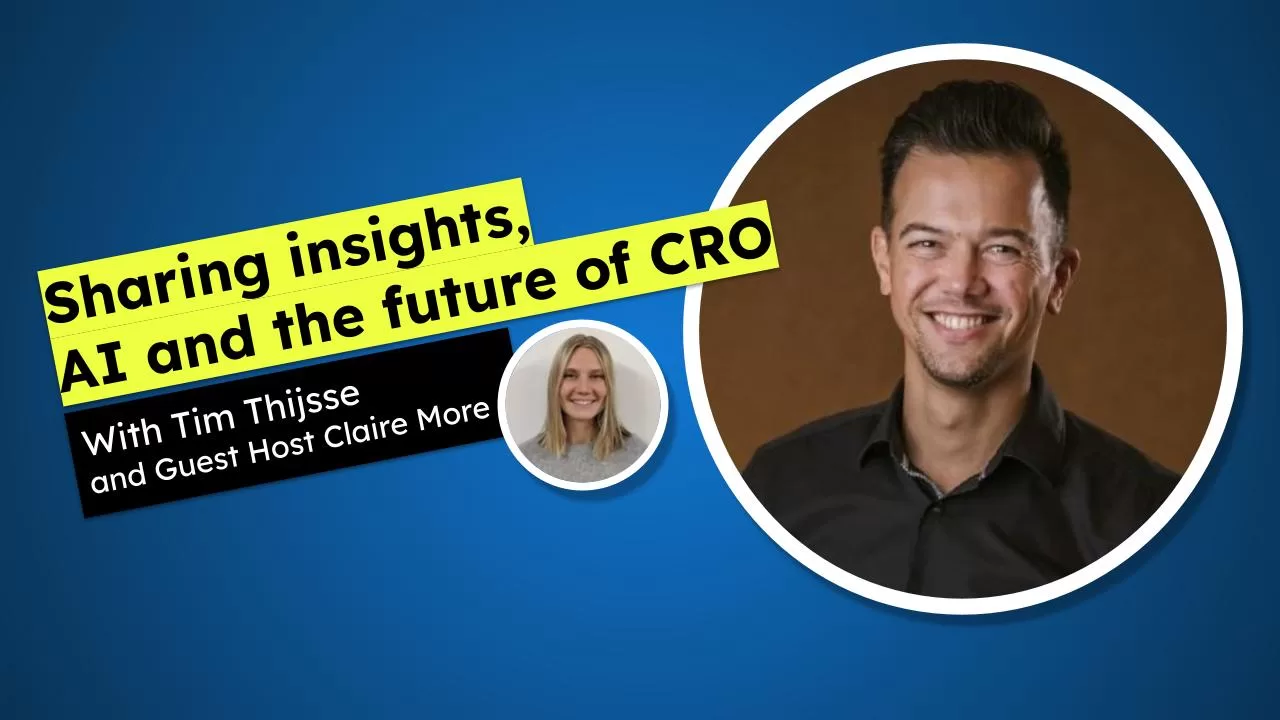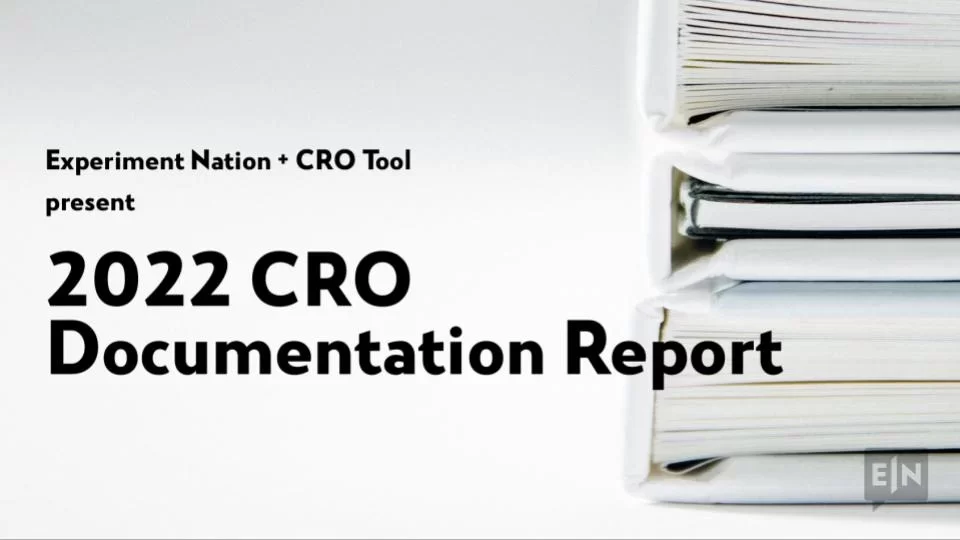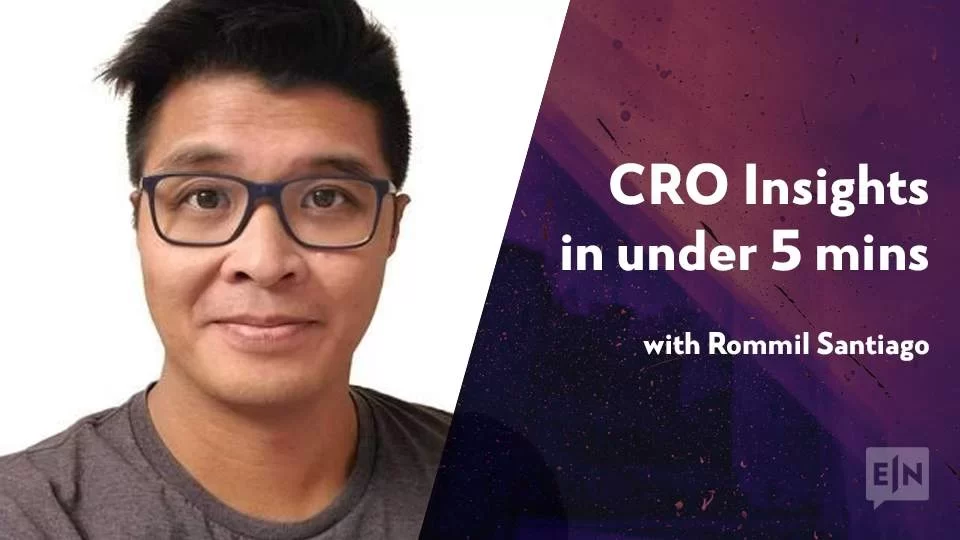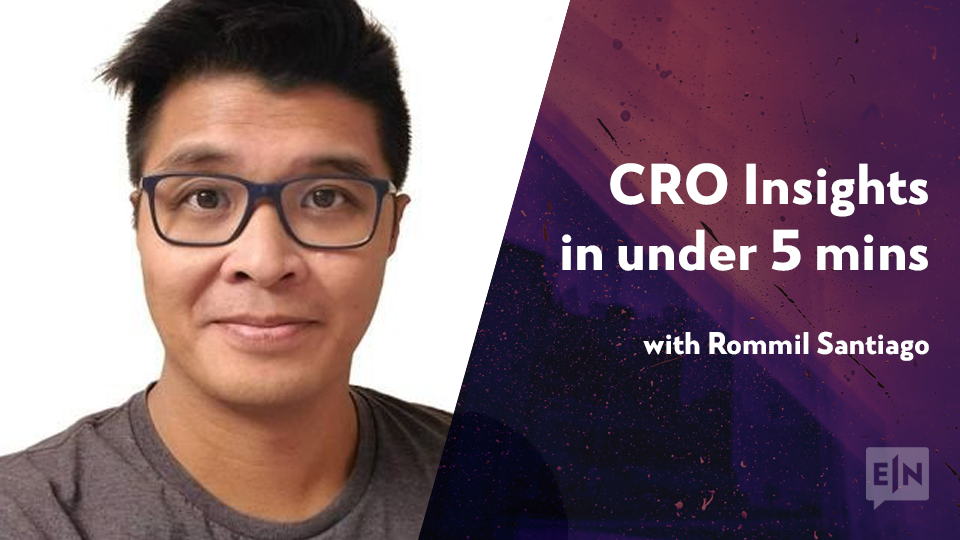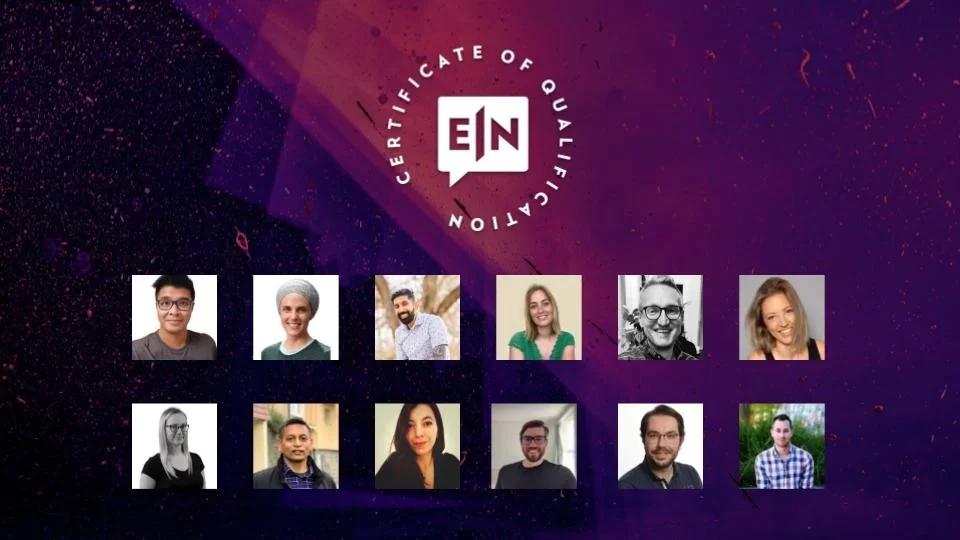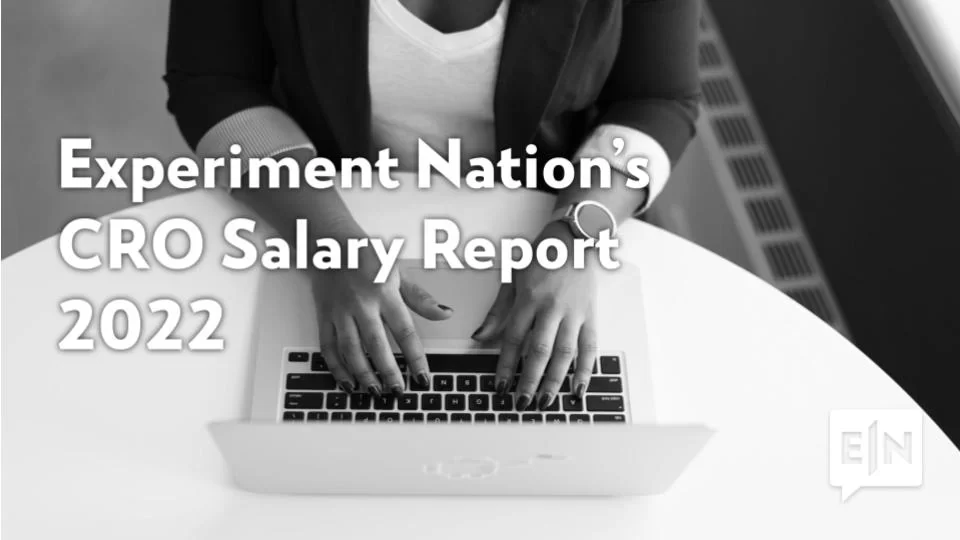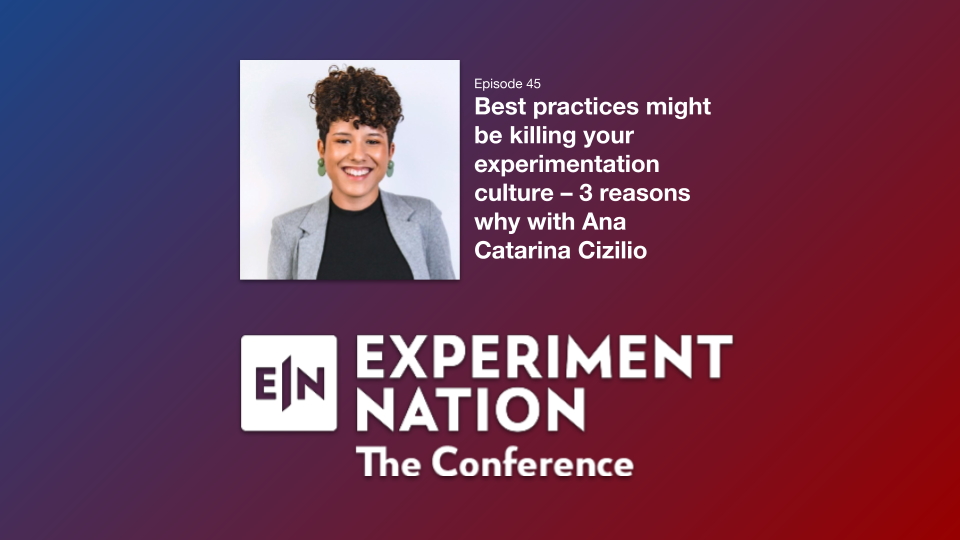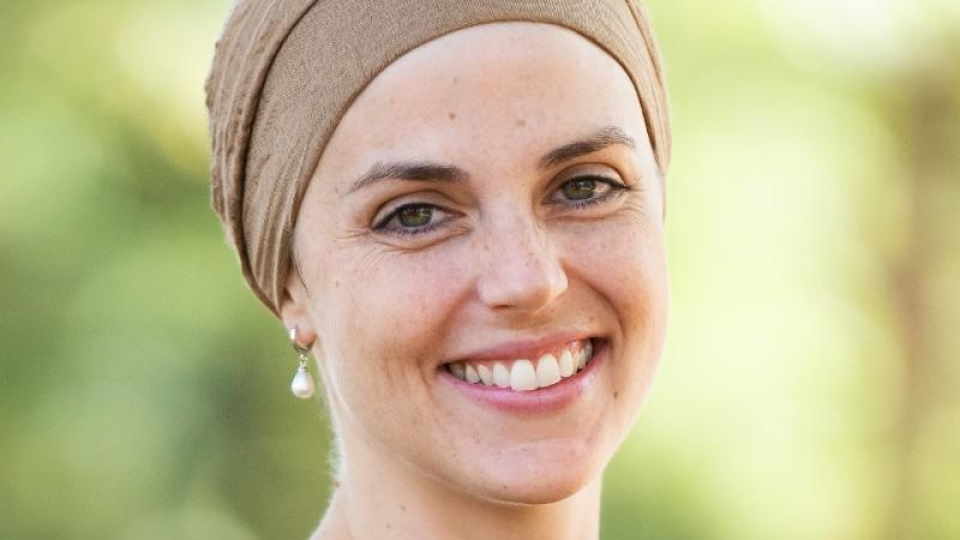Simar, CEO and Founder of OptiPhoenix, shared invaluable insights on A/B testing and CRO at Experiment Nation. Here are 5 key takeaways: Don’t rely solely on macro goals: Micro goals reveal user behavior, driving better testing strategies and informing future hypotheses. Iterative testing trumps scrapping: Learn from failed tests by adjusting hypotheses and running new experiments, boosting your win rate. QA is critical but often neglected: Invest time in thorough QA, ensuring your test is accurate and integrated correctly. Outsourcing AB test development can be beneficial: Consider outsourcing for faster scale-up, access to expert resources, and reduced development burden. Prioritize experimentation within your workflow: Make A/B testing an integral part of your product development process, leading to better decisions and faster results.
Category Archives: For LinkedIn
Navigating Experimentation at Startups with Avishek Basu Mallick
Avishek Basu Mallick, a Senior PM at CheapOair talks about: – Experimentation at scale: Even with high traffic, rigorous experimentation is crucial. – Idea generation: User research, NPS surveys, and internal stakeholders are valuable sources of experiment ideas. – Communicating progress: Regular updates with leadership build trust and ensure alignment. – Personalization is nuanced: Distinguish between customization, segmentation, and true personalization. – Generative AI’s potential: Explore its use for simplifying the travel planning experience.
People are the biggest challenge featuring Michael St Laurent
Michael St Laurent, a seasoned CRO expert, shared his insights on large-scale testing Here are 5 key takeaways for marketers: Prioritization is key: Large-scale testing requires prioritizing tests based on potential impact and aligning with overall business goals. AI is the future, but humans guide it: Mike emphasizes the power of AI in automating processes and analyzing data, but highlights the importance of human expertise and guidance. Data quality is crucial: AI models rely heavily on the quality of data. Invest in building a robust data infrastructure to ensure accurate results. People are the biggest challenge: Navigating internal politics and managing stakeholder expectations is often the biggest hurdle for large-scale testing. Building a testing culture is a win: The ultimate goal of large-scale testing is to create a data-driven culture that fosters continuous improvement and better user experiences.
Start Small and Stay Curious featuring Ellie Hughes
Ellie Hughes, a top CRO expert and Experimentor of the Year, shared some incredible insights in her recent Experiment Nation interview. Here are 5 takeaways to boost your experimentation game:
– Start Small and Stay Curious: Ellie emphasizes that experimentation is a journey, not a destination. Start small, stay curious, and never stop learning!
– Prioritize Value, Not Tasks: Focus your time on activities that truly drive client value, like uncovering insights and ideation, rather than spending hours on tedious tasks.
– Set Clear Expectations: Clearly define reporting timelines and communicate about peeking, managing client expectations, and setting the stage for success.
– Embrace Iteration: Experimentation is an iterative process. Be open to changing your process, adapting to new learnings, and continuously improving.
– Maximize Impact Through Big Ideas: Larger changes can be easier to detect, resulting in faster results and more impactful growth. Encourage clients to think big!
Using measurement to test on low-traffic sites featuring Chris Mercer
Join us for a deep dive into conversion rate optimization on low-traffic sites with these actionable insights Chris Mercer
Measure before optimizing: Understand the current user journey and behaviors to identify areas for improvement.
Test sequentially: Iterate faster on low-traffic websites by testing changes sequentially instead of using AB tests.
Focus on the right metrics: Prioritize actions that drive meaningful outcomes, such as lead generation or revenue.
Listen to the market: Gather user feedback to inform your optimization strategy and meet their needs.
Automate measurement: Leverage Google Analytics 4 to collect and analyze data effectively to guide decision-making.
Build a Learning Library featuring Nick Murphy
Discover the power of experimenting to learn and win! ?
Nick Murphy shares his expertise on building learning libraries. Here are 5 key takeaways:
– Learning libraries capture the “why” behind successful and unsuccessful tests.
– Organize your learning library with consistent and digestible fields.
– Use “broad” and “specific” learning columns for a layered understanding.
– Encourage cross-team collaboration by sharing insights company-wide.
– Learning libraries foster a culture of experimentation and growth.
How To Build An Unstoppable Alliance With CX Feat. Courtney Leblanc
In this episode, senior customer experience leader, Courtney LeBlanc, reveals the ideal partnership between CX and experimenters and shares invaluable insights on:
Forging powerful partnerships between CX and experimenters
Navigating the daily demands of a CX leader
Simplifying CX workflows with customer insights
… and so much more!
Don’t miss out on this enlightening conversation from an expert in the CX game!
Product Experimentation: How to get Product Managers to Experiment ft. Shagun Aulakh
How do you get Product Managers to adopt Experimentation? Shagun Aulakh, the Director of Product Management – Experimentation at American Express shares with Rommil here tips.
AI and the Experimentation Lifecycle featuring Joey Herzberg
In this episode, we have Joey Herzberg who shares his thoughts on how AI fits in the experimentation life cycle, the utility of keeping easily referenced records of test results, and the importance of experimentation strategy with regard to sample ratios.
Use automation to build optimal flow states with Shawn David
Learn about human-first engineering in this in-depth interview where Shawn David discusses strategies to organize work and to break down tasks into smaller digestible sessions. He explained the most effective ways for teams to discover the work that should be automated the most by focusing on the desires and strengths of individuals, to remove work that is menial especially to them. We explored the impacts on company culture that menial tasks can cause and discussed some of the pitfalls with new technologies as well as lessons to keep in mind while reviewing new tools and technologies.
The Challenges of Building a Culture of Experimentation: Insights from Industry Leader Nima Yassini
Join Nima Yassini as he dives into experimentation culture, the journey of building a brand UX and digital marketing agency focused on conversion rate optimization, the integration of digital marketing and experimentation culture, the struggles and benefits of adopting a culture of experimentation, and the need for leadership and reinvestment in the experimentation industry.
Don’t A/B Test?! featuring Solomon Kahn
CEO and founder of Delivery Layer, Solomon Kahn shares why he thinks that most companies should NOT be A/B testing and what we should do instead. He also shares details about his recent exchange with Ron Kohavi on LinkedIn on this same topic. What side are YOU on?
Experiment Nation’s 2024 CRO Salary Report and how to paid what you’re worth with Tracy Laranjo
It’s that time of year again! It’s time for Experiment Nation’s 2024 CRO Salary Report. In this episode, we explore some of the report’s highlights with Tracy Laranjo as well as ask her for her thoughts on how CROs and Experimenters can get paid fairly.
Always start by testing your best variation with Zach Lebovics
Zach Lebovics shares insights on experimentation and product management. He discusses the importance of documenting assumptions, testing the best-case scenario first, and understanding that experiment failure isn’t solely tied to the outcome. Zach also shares personal experiences and learnings from working in companies like Zynga, Ritual, and Tonal, providing valuable tips for product managers.
Navigating Stakeholder Management and Gaining Buy-In with Shiva Manjunath
Media.Monk’s Juliana Jackson shares the truth about app development, optimization, and how web and app should work together.
The truth about app development and optimization with Juliana Jackson
Media.Monk’s Juliana Jackson shares the truth about app development, optimization, and how web and app should work together.
The power of CRO mentorship with Tracy Laranjo
Fractional Head of CRO, Tracy Laranjo talks about the power of Mentorship for Conversion Rate Optimizers (CROs). We cover:
Why would CROs need mentorship?
How do you find one?
When are you ready to be a mentor and how do you get that word out?
Would Tracy be a mentor for our listeners?
Product Management vs. CRO with Bryce York
In an insightful interview at Experiment Nation’s Conference, Bryce York, Director of Product Management at Tatari, delves into several key insights. He explores the parallels and distinctions between CRO and product management, especially in smaller companies where overlapping skills are crucial. Bryce shares his personal journey from entrepreneurship to product management, underscoring the significance of both qualitative and quantitative data in experiment design. Additionally, he emphasizes the importance of documentation and knowledge sharing in cultivating an experiment-driven culture.
Create a more impactful testing roadmap with this framework – ft. Edmund Beggs
Documentation. The unsung, yet incredibly important part of any experimentation program. Great documentation allows you to look back at past experiments and find patterns of what were the most effective levers to inform your testing roadmap and levers you probably can deprioritize. In today’s episode of Experiment Nation, our own Charlotte April Bomford recently spoke to Edmund Beggs about the “Levers Framework” which allows Convert.com to deliver results for their clients in shorter amounts of time. If you’d like to learn more about this interesting framework, watch the full interview.
How to learn from failures (from losing and winning tests) with Simon Girardin
Simon Girardin emphasizes the importance of learning from every test, capturing value by reviewing data, segmenting results, and analyzing user behavior through session recordings and heatmaps.
How to build a community around experimentation with Rommil Santiago
Koalatative’s Gerda Vogt-Thomas asks Rommil Santiago questions about how he started Experiment Nation and how he manages it while working a full-time job at Optimizely.
Level-up your UX Research with Diary Studies featuring Mike Green
Research is important to Conversion Rate Optimization, but are you leveraging the power of Diary Studies? If not, you’re missing out. Learn more from Mike Green.
The Top 20 Must-Meet CROs of 2023
Earlier this year, we asked the Experiment Nation community who were the CROs that they felt everyone should know because of their welcoming nature, openness to connecting folks with others, willingness to share their expertise, and being just all-around awesome folks. Here are the results along with what the community had to say about them.
How to get Stakeholder Buy-in for all your Experiments featuring André Morys
Learn from André Morys, CEO of KonversionsKRAFT, on gaining crucial stakeholder buy-in for experiments. André highlights the challenges faced by optimizers and advocates for understanding team dynamics through stakeholder mapping. He emphasizes approaching stakeholders, using empathy to build relationships, and overcoming objections. André shares practical insights on conflict management, including a stakeholder map with color-coded power dynamics. Discover the significance of regular check-ins, fostering trust, and achieving tangible results in experimentation. Master the art of securing support for your experiments effectively.
Will Laurenson: From Startups to CRO Mastery
Will Laurenson shares his journey from startup to becoming a CRO (Conversion Rate Optimization) expert. Will discusses the significance of usability, anxiety, and motivation in CRO, drawing from his extensive experience in running tests and optimizing various businesses. Will’s approach to CRO involves deep insights into user behavior and a focus on aligning products with customer needs, challenging the common pitfalls of assuming product-market fit based solely on initial traction or advertising success.
The CRO Statistical concepts all CROs should know featuring Ishan Goel
In this insightful video, Ishan Goel, transitioning from a software engineer to a researcher, delves into crucial CRO statistical concepts. He sheds light on statistical significance in experimentation, explores A/B testing intricacies, emphasizes the efficiency of sequential testing, and discusses challenges in stopping tests prematurely. The talk concludes by highlighting the intersection of experimentation and statistics in the realm of Conversion Rate Optimization.
Ad Optimization: Your Ads Aren’t Working and Here’s Why ft. Joe Fitzpatrick
So much is spent on ads that it’s a no-brainer to invest in ad optimization. Embracing experimentation and learning from failures is essential for long-term success in performance marketing. Experiment Nation’s Tracy Laranjo spoke with Joe Fitzpatrick about reasons why your ads aren’t working and what you can do about it.
Maximizing Results: A Comprehensive Guide to Ad Network Experimentation ft. João Marcelo Rodrigues
Maximizing results in ad network optimization requires a systematic approach. Start with A/B testing on Google Ads and gradually introduce more complex campaigns, balancing technical and creative aspects. Analyze your channel’s performance, ensuring sufficient impressions and conversions for statistically significant results. Shape your product to align with the ad network’s requirements and consider user experience. Prioritize velocity in testing initially, gradually enhancing quality, and encourage collaboration across different platforms for valuable insights in the quest for optimization.
The top CRO Myths that experimenters have to bust ft. Lucas Vos
Lucas, a senior conversion specialist, shares his journey in the media industry, emphasizing the transformative impact of A/B testing. He discusses myths about experimentation – debunking them along the way as well as highlights the importance of validation, integration into essential projects, and showcasing negative results. Lucas encourages testing the obvious and unexpected, questioning assumptions, and showing the value of experimentation to reduce risk and aid decision-making, making it an asset for senior managers and specialists.
Personalization timing matters – Avoid these common mistakes ft. Eric Melchor
Eric Melchor, an evangelist at Optimonk, emphasizes the importance of focusing on the product page for effective conversion rate optimization (CRO). He suggests treating website visitors as individuals and creating a personalized and enjoyable customer experience in real-time. Melchor also discusses the significance of capturing visitor interest early on and leveraging smart CRO tactics and personalization timing throughout the customer journey. Additionally, he mentions the value of optimizing the product page, as it can yield significant returns on investment.
CRO Organizational Structure- Centralized Team vs Process: with Oliver Paton
We explore various angles of CRO Organizational Structure. We discussed primarily the differences between centralized CRO teams vs a company-wide experimentation culture, and how this is best looked at as a continuum. Companies starting out might benefit from a centralized CRO team whereas more mature optimization programs can benefit more from working experimentation into all facets of the company. How can a company who does 0 experimentation introduce and adopt an experimentation process/culture? We also chatted about experimentation at the customer level, what this means, and how it could be the future of optimization.
What CROs need to know about Heatmaps with Deborah O’Malley
Heatmaps to the rescue! Creating an impactful website hero section above the fold is vital for user engagement. Clear value propositions and compelling calls to action are essential, as users often don’t scroll past this section. Heat mapping, combined with other techniques like exit polls and A/B testing, provides a comprehensive understanding of user behavior. While urgency and scarcity tactics can be effective, users have become more skeptical of overused strategies like countdown timers. Understand your audience through analytics data and tailor your optimization strategies accordingly, whether it’s for B2C, B2B, or other sectors. Mobile interactions may have imprecise heat map data, so use it alongside other sources for a well-rounded view.
Getting start-ups to adopt a culture of experimentation with Simon Girardin
To ensure the success of CRO projects, it’s vital to involve all stakeholders, including executives and directors, right from the start. This inclusive approach not only helps them understand the intricacies of the CRO process but also demonstrates the depth of strategic thinking behind it. Even skeptical executives can be won over by involving them in CRO calls, showcasing the complexity that goes beyond mere marketing tactics. Such transparency and involvement lead to a more informed and supportive team, fostering successful CRO initiatives.
Announcing the 2023 Conference Awards
Our panel of judges watched every session of our recent conference and voted for the best speakers in several categories.
How to Maximize Hypotheses Testing ft. Eduardo Marconi Pinheiro Lima
In the world of Conversion Rate Optimization (CRO), Eduardo, a seasoned practitioner, shares his journey and the evolving landscape of CRO in Brazil. He underscores the importance of maintaining a problem-solution mindset and learning from mistakes to drive meaningful impact. One core principle he highlights is the need to focus on hypotheses that yield significant results, comparing them to squeezing fruit for juice. This strategy involves exploring promising hypotheses further and discarding those with neutral or unimpressive outcomes, a practice essential for effective experimentation, whether in-house or at an agency. The key takeaway is to persevere with ideas, akin to squeezing every drop of insight from hypotheses, and leveraging comprehensive data for a deeper understanding, a competitive edge held by in-house roles in the experimentation field.
What you need to know about Landing pages with Claire More
Integrating landing pages is crucial for tailored user experiences. Without it, visitors are directed to generic pages lacking personalized messaging. Landing pages are designed to enhance conversion rates and ROI. E-commerce companies benefit by using various types of landing pages, like the classic hero for focused products, listicle hero for storytelling, collection hero for multiple items, and content advertorials for top-funnel content. Mistakes include using one-size-fits-all pages and lacking customer-oriented content. Improve by collaborating with ads teams, using customer voices, and continuous experimentation. Claire More from Splitbase shared insights on optimizing landing pages for effective campaigns.
Don’t test everything with Oliver Palmer
Don’t test everything. Experimentation isn’t about proving how clever you are. Mistakes in testing ideas from your own head are common; personal bias clouds results. High-performing experimentation needs executive buy-in and integrated roles. Successful teams engage diverse players with vested interest, ensuring hypotheses formation and metric selection are comprehensive. Valuable experimentation saves time by testing what not to do. Rather than just chasing conversion lifts, recognize when improvements won’t make a difference. Cultural shifts, humility, and prioritizing efficient use of time are key components of effective experimentation programs. Test what makes sense.
The truth about building an Experimentation Culture with Mark Eltsefon
In this podcast episode, Mark Eltsefon, a senior data scientist and experimentation evangelist, discusses building an experimentation culture in different companies. He shares his journey from starting as a software developer to becoming passionate about data science and experimentation. He contrasts the experimentation culture at TikTok, where data-driven decisions were central and democratization was encouraged, with his current role at an e-commerce company specializing in print-on-demand. He emphasizes the importance of educating stakeholders about data-driven decision-making, and he highlights the need for strong experimentation infrastructure and high-quality hypothesis testing. He believes that while democratization is valuable, it’s important to balance it with maintaining the quality of ideas and statistical rigor.
How to get Personalization Right with Juliana Amorim
Juliana Amorim emphasizes that personalization is not a silver bullet and recommends its use when aligned with strong hypotheses and business goals. She co-founded Croct, a personalization experimentation platform, focusing on adapting user journeys to context. Examples include tailoring websites for diverse buyer personas within B2B companies and customizing content for users at different stages, like newcomers or existing customers. AI-based personalization and rule-based personalization can coexist. Brands should prioritize personalizing their websites and consider first-party data support.
Stop limiting yourself – build your CRO brand today with Carlos Trujillo
Building a personal brand as a conversion rate optimizer is crucial in today’s competitive digital landscape. Your personal brand serves as a powerful tool to establish credibility, showcase expertise, and attract new opportunities. By cultivating a strong brand identity, you position yourself as an authority in the field, gaining trust from potential clients or employers. A well-developed personal brand helps differentiate you from others, highlighting your unique approach and methodologies. It opens doors to collaborations, speaking engagements, and thought leadership opportunities. Additionally, a strong personal brand creates a lasting impression, leading to increased visibility, a larger professional network, and ultimately, a steady stream of clients or job offers.
Building a CRO Culture & Ideation Strategies with Lucia van den Brink
By implementing ideation strategies and fostering a culture of experimentation, companies can drive innovation and stay ahead of the curve. Building an experimentation culture is crucial for companies that want to innovate and stay ahead of the competition. It starts with creating an environment where experimentation is encouraged and failure is seen as an opportunity to learn and improve. Teams should be given the freedom to try new ideas and test them quickly using small-scale experiments. It’s important to collect and analyze data from these experiments to make informed decisions about what works and what doesn’t. Lucas Vos interviews Lucia van den Brink in this great AMA session.
Learn from Mistakes: What Eddie Aguilar learned from accidentally taking down InVision
Eddie Aguilar, a developer and CRO specialist, shares his experience with experimentation and optimization. He discusses how he started as a developer at a young age and eventually shifted to optimization. He recounts a specific incident while working with Envision App, where he made a global change to the website that caused a significant error, resulting in a spike in error logs. Eddie emphasizes the importance of communication and collaboration in such situations. Despite the error, the test yielded impressive results, with a 227% revenue lift and 70% LTV lift.
Make Personalization Personal with Care and Competence with David Mannheim
David Mannheim, author and expert on personalization, discusses the importance of personalization in marketing. He emphasizes the need for brands to focus on building relationships with customers based on trust and care. Mannheim distinguishes personalization from segmentation, highlighting personalization as a communication principle rather than just a marketing tactic. He also mentions the challenges faced in implementing personalization, such as the pressure for immediate returns and the balance of metrics.
How to use questions in CRO and how to build a Questioning framework with Riccardo Vandra
In this video, Riccardo Vandra discusses the importance of asking powerful questions for conversion rate optimization (CRO). He emphasizes that the quality of our questions determines the quality of our insights and ultimately our success. Riccardo proposes a three-step questioning framework for building effective questions.
Customer Value Optimization Explained with Defiant’s Jason Chappel
We sat down with Jason Chappel, founder of Defiant, a specialist Customer Value Optimization agency, to discuss what sets CVO apart from CRO. Jason shares his insight on the importance of understanding and optimizing the entire customer journey, from acquisition to retention, and how CVO can help businesses increase customer lifetime value and drive sustainable growth in your business strategy.
Combining Quantitative and Qualitative to Increase Conversions with Harriet Swan
We all know that humans are very complex and are hard to predict how they will behave. This is why we want to do use multiple methodologies in tandem to understand our customers.
Great PMs know how to tell good stories with Priya Bhatia
To have any real influence or buy-in, you need to be able to tell a good story. Khalil recently interviewed Priya Bhatia to get their advice on how to tell a good story.
Do 3-column layouts increase orders? with Nicoleta Danile?
Optimizing forms during checkout is crucial for a seamless user experience. By simplifying and streamlining the process, businesses reduce cart abandonment rates and increase conversions. Shortening form length, utilizing autofill options, and providing clear instructions enhance efficiency, minimize user frustration, and ultimately boost customer satisfaction, loyalty, and revenue.
Nicoleta walks us through a case-study where she explores a 1 column form vs a 3 column form in checkout.
A/B Testing Statistics Concepts Experimenters must know with Ronny Kohavi
Learn A/B Testing Statistics, how to use Overall Evaluation Criterion, Twyman’s law, how much traffic do you need to run A/B tests, and other statistical concepts all Experimenters must know.
Build or buy your Google Optimize replacement with Kenneth Kutyn
Are you looking to replace Google Optimize? On Experiment Nation’s recent podcast, Charlotte April Bomford chats with Kenneth Kutyn about replacing Google Optimize, how to select a new vendor, and whether it’s worth building your own Experimentation Platform (spoiler alert: the answer is usually no).
Sharing insights, AI and the future of CRO with Tim Thijsse
Tim Thijsse, a senior CRO (Conversion Rate Optimization) consultant at Orange Valley, discusses AI and the future of CRO, and the importance of incorporating qualitative research into company-wide processes. He emphasizes the challenge of linking user behavior and mindset to knowledge and information. Tim shares his background, starting as an interaction designer and later transitioning to UX design and CRO. He highlights the evolution of CRO, the need for a culture of experimentation, and the role of qualitative insights in optimization strategies. Tim also discusses the challenges companies face in adopting an experimentation mindset, such as aligning strategy, operations, and technical aspects, and the importance of having a common metric and collaboration among teams.
7 must-know CRO fundamentals based on running 22,000 tests with Ayat Shukairy
Ayat Shukairy emphasizes the importance of addressing the functional, social, and emotional aspects of customer needs when designing websites. She shares seven lessons learned from her experience in conversion rate optimization.
CRO Insights from a Meta-analysis of over 1000 A/B Tests with Georgi Georgiev
Georgi Georgiev performed a meta-analysis of over 1000 A/B tests and has a great deal to share about:
– What you should expect your win rate to be
– The benefits of sequential testing
– Why you should report on confidence intervals
Get Executive buy-in for your CRO program with Jonny Longden
Let’s face it, experimentation is completely misunderstood. The power and the benefit and potential of it is to innovate and develop a business. And when you think about it, that’s what experimentation has always been in relation to the scientific method. If you think about spaceflight, medicine, anything great that’s happened in the history of modern civilization, this has all happened as a result of the careful application of the scientific method.
A/B Testing Statistics issues CROs should ignore with Timothy Chan
Experimenters obsess about many A/B Testing Statistics concepts – but not all of them are worth worrying about. Statsig’s Timothy Chan shares his thoughts about test isolation, interaction effects and confidence levels – some of his thoughts may surprise you.
Client Relationship Tips from a CRO Agency Founder with Andra Baragan
In this presentation, Andra Baragan, the Founder of ONTRACK DIGITAL will walk you through what you need to know to build a strong, successful relationship with your clients and with your team.
You will learn:
– how to set expectations with your client from Day 1
– how to leverage operating procedures and automate your work
– how to communicate with clients and get stakeholder buy-in every time
What you need to know about Launching a CRO agency with John Ekman
10 lessons that helped John Ekman in Launching a CRO agency. John learned many lessons when launching his agency – he wants to share them with you.
Optimize Customer Lifetime Value – NOT Conversion Rates with Valentin Radu
After decades of acquisition marketing, companies are waking up to the fact that optimising the entire lifecycle of the customer is the way to go. That happens due to rising acquisition costs, cookie deprecation, siloes, company mentalities, etc.
In this session, Valentin will share insights from his 12 years of experience transitioning from CRO – website optimization to increase the conversion rate to CVO – experimenting towards improving the CLV.
Improve conversions with the Message-market Fit framework With Daphne Tideman
Message-Market fit is the idea that a message, whether it be a product, service or idea, needs to resonate with a specific target market in order to be successful. It involves finding the right message that effectively communicates the value proposition of a product or service to a particular audience, in a way that resonates with them.
Avoid AB Testing Statistics Mistakes with Max LI
A/B testing plays a critical role in decision-making – but so does AB Testing Statistics Mistakes. In data-driven companies, A/B tests not only prove positive impacts of product features (treatments) but also provide evidence to safely roll out neutral features that are not expected to move business metrics. When rolling out a neutral feature, we need to test if the treatment is non-inferior to control, and conventional A/B testing is not suitable in this case.
Stop having bad test ideas – with Bart Schutz
Add Exploration and Validation phases to your testing program – because most of your wins are fake.
How to be a good Experimentation LEADER with Cristina Pujol
Being an Experimentation leader requires a different set of skills. Vistaprint’s Cristina Pujol walks through the lessons she’s learned.
The Best CROs start with RESEARCH with Rommil Santiago
Where should you start testing, like with most processes, starting is usually the most challenging part.
Pragmatists will grow the CRO industry – not purists – with Matt Scaysbrook
This attitude has a negative impact on new entrants to the industry and sets completely the wrong tone for the next generation. The greater the participation in the industry, the stronger it will become – the wider that participation, the more ideas (and the more diverse those ideas) will come through. And that is only a good thing for us all longer-term.
How to be good at coding A/B tests with Jeroen Wiersma
How to be a good test coder with Jereon Wieresema
The CRO Survival guide with Carlos Trujillo
Carlos shares most strategic actions that a new Experimentation Strategist (or Program Manager) can execute during their first three months in the role to increase trust among the stakeholders and clients.
Stop wasting time by having principles with Rommil Santiago
You don’t have to A/B test everything. Be smart by having guiding principles.
The top 3 things CROs forget to do with Alexandra Matheny
Many optimizers are good at using data to craft hypotheses. Great optimizers, however, build data-driven segments, analyze by business goals (not just test KPIs), and importantly, propose how to take action on campaign results.
The problem with the word, “Hypothesis” and the importance of HiPPOs with Nima Yassini
Having mature conversations with immature markets, the problem with the word, “Hypothesis”, the importance of HiPPOs with Nima Yassini
Experiment Nation’s most popular posts of 2022
Here are the most popular posts from the last 12 months!
How to adopt a CRO mindset for life optimization with Ruben de Boer
Life optimization involves setting goals and creating plans for reaching them. It also involves improving physical, mental, and emotional well-being. Ruben de Boer shares with our own Richard Joe how he leverages a CRO mindset to engage in activities that bring purpose, satisfaction, and joy to life.
How to build a customer journey map with Anthony Wallace
Creating a customer journey map can help stakeholders better understand the customer’s experience, and helps ensure that all stakeholders are working towards the same goal. It can also help identify potential areas of improvement, and provide insights into how customers interact with your product, service, or organization.
The Top 20 Must-Meet CROs of 2022
Earlier this year, we asked the Experiment Nation community who were the CROs that they felt everyone should know because of their welcoming nature, openness to connecting folks with others, willingness to share their expertise, and being just all-around awesome folks. Here are the results along with what the community had to say about them.
How to land a great job in CRO (and earn what you’re worth) with Tracy Laranjo
If you change jobs quickly, will employers think you’re a job-hopper? Tracy shares her opinion.
Zuko Analytics’ Alun Lucas on Why good form design is important and common form optimization myths
Richard talks to Alun Lucas from Zuko Analytics about Form Optimization
Pre-test planning: The Red-Headed Stepchild of Experimentation with Haley Carpenter
Teams are horrible at this! They have no idea it should happen, and if they do, they’re usually lost and the approach is terrible. When you break it down, it’s really not difficult. This shouldn’t be a black box anymore.
Experimenter of the Week: Charlotte April Bomford
Check out our Experimenter of the week!
Why Focus on Skeptical First-time Buyers? with Rishi Rawat
During Experiment Nation’s recent conference, Rishi Rawat shared during his award-winning session why we should focus on Skeptical First-time Buyers.
We asked the CRO community: How do you document your experiments?
If you’ve ever wondered how CROs document their Experiments, we’ve collected some information that might be useful to you.
Rommil Santiago shares how to create a quick and dirty Learning Agenda
Creating a Learning agenda doesn’t have to be complicated. Rommil Santiago shares how you can create one – in under 5 minutes.
Online Dialogue’s Ton Wesseling shares his thoughts on how CRO will probably die
Our new podcast host, Richard Joe, speaks to Online Dialog’s Ton Wesseling about how he got started, the lessons he learned during his career, and how the CRO industry will die.
Announcing the 2022 Experiment Nation Conference Award Winners
Here are the best sessions and speakers of our most recent conference!
CRO Memes Digest #18
Check out the CRO Memes of the last 2 weeks!
Test before you build anything or you’ll waste time course-correcting with Rommil Santiago
There’s a lot of talk about how to find things to test, how to analyze tests, and the importance of iterating on tests. This week, I was thinking about how I could add something a little different to the conversation and decided to share my thoughts about when to run a test – particularly when building products.
Not every insight is derived from an A/B Test with Daniela Marquez
Curiosity needs to be a driver in every experimenter’s toolkit. What is going on in the head of my customer? What is really their job-to-be-done? When buying flowers, we typically think of the standard occasions: Mother’s Day, Valentine’s Day, new baby & sympathy. But if we were to structure our ecommerce website on those occasions alone, we may be addressing the majority, but we’d be missing out on the real motivation behind the purchase as well as other reasons people buy flowers.
CRO Memes Digest #17
Check out the CRO Memes of the last 2 weeks!
3 ways to be a better Experimentation leader with Rommil Santiago
Even if you are the best Experimenter at your company, unless you are able to nurture a culture of Experimentation – you’ll end up constantly fighting uphill battles. Here are a few quick pointers on how to be a better Experimentation leader.
Experimenter of the Week: Dorian Gonzalez
Check out our Experimenter of the week!
CRO Memes Digest #16
Check out the CRO Memes of the last 2 weeks!
What Hawaiian Pizza can teach us about creating a more inclusive CRO industry
Pineapple on pizza. If you ever want to have a heated debate with a group of people, ask them if pineapple belongs on pizza. You’ll hear arguments about how people should be allowed to like what they like and that should be OK, as well as, pizza is XYZ and that anything different cannot beContinue reading “What Hawaiian Pizza can teach us about creating a more inclusive CRO industry”
How Europe leverages AI for optimization with Noémie Sauvage
Noémie Sauvage shares her industry knowledge about optimization in Europe. Check it out!
CRO Memes Digest #15
Check out the CRO Memes of the last 2 weeks!
How Wordle proves that Experimentation works
If you haven’t tried it yet, Wordle is a popular online game where you have to guess a 5-letter word within 6 tries – and it’s quite fun and addictive. Every day there is a new word to guess, and everyone gets the same word. It cleverly lets you post how you solved (or didn’t) the daily puzzle – which often sparks some lovely conversation online. Interestingly, there are a lot of parallels between Wordle and the Craft of Experimentation. Find out how.
Pizza Dough CRO with Simon Clark
Optimization and Pizza Making are the same and Simon will help you understand how and why it is beneficial to let your dough prove for longer.
CRO Memes Digest #14
Check out the CRO Memes of the last 2 weeks!
Can you run tests on sites with little traffic?
From a pure experimentation perspective – one absolutely can forego using statistics and just see what happens. We can believe the dictionary, the dictionary definition of an experiment is: “a scientific procedure undertaken to make a discovery, test a hypothesis, or demonstrate a known fact.” A scientific procedure (aka the scientific method) states nothing about having to use a statistical approach for analysis. However…
Event Wrap-up: CONVERT – Conversion Optimisation Meetup (Bristol & Bath)
July saw the first event of CONVERT – a Conversion Optimisation Meetup in the South West of England.
Attended by 20 people, the evening was packed with interesting discussions around user behaviour tools and success stories. As with most events, a lot of valuable discussions came from networking and this was the perfect evening for that. Whether it was reconnecting with ex-colleagues or meeting someone with a similar role, it was brilliant to see. I for one had gotten too comfortable behind the screen!
Where should I start with testing?
Like with most processes, starting is usually the most challenging part. You know the feeling. It’s when you don’t have your flywheel going quite yet and you’re not sure at what stage to jump in. When it comes to Experimentation, the usual places I see people jump in are at the Research, Hypotheses creation, orContinue reading “Where should I start with testing?”
How to verify your data truly reflects user behaviour with Florent Buisson
Florent Buisson is a decade-long behavioral economist who published a practical guide to behavioral data analysis in business. It’s the book he wished he had when he started in analytics.
In this episode, he shares:
Why intuition can actually be a good thing in data analytics. If you need to know R or Python to understand your users. Why and when causal analytics are important.
CRO Memes Digest #13
Check out the CRO Memes of the last 2 weeks!
How do I change people’s attitudes towards Experimentation?
Of course, there are a million ways to answer this question that range from demonstrating wins, being inclusive, and evangelism. This week, I thought of sharing a couple of the little things you can do that, if done consistently over time, can start to realize gains in the long run. Words matter Experimenters and CROsContinue reading “How do I change people’s attitudes towards Experimentation?”
How to make a better sandwich: An introduction to multivariate testing with Danielle Gunraj
A/B Testing can be intimidating to the uninitiated, but it doesn’t have to be! I want to introduce testing concepts via a real-world scenario that we can all relate to: Dessert. I’ll cover what an MVT is, hypotheses, independent variables, dependent variables, results (of course), and design flaws. And if you need any more convincing, I have four words for you: Monte Cristo Bread Pudding.
Choosing the right A/B testing tool with Product for Product
Matt Green and Moshe Mikanovsky of Product for Product podcast help you navigate the plethora of A/B testing tools out there.
Whether you’re in product or marketing, listen for a beginner-friendly comparison of tools like Google Optimize, Optimizely, and more.
**This episode, nor those of Product for Product, are endorsements of any of the discussed tools.**
CRO Memes Digest #12
Check out the CRO Memes of the last 2 weeks!
Experiment Cartography :: Building the Perfect Roadmap with Kenya Davis and Krissy Tripp
You can do better than testing button colors, but how do you decide what to test when and what type of test to run? Roadmapping. This session teaches you to be the GPS navigator, helping your team optimize experimentation routes. On this journey you will identify how each path can drive desired impacts by turning a formidable trek into a series of attainable milestones.
How to rally your team around Voice of Customer research with Tracy Laranjo
Tracy is a Toronto-based growth marketer with a knack for conversion optimization. In a past life she’s QA tested “adult” eBooks and helped make it easier for Canadians to write their wills online. Tracy is also one of the co-hosts of the Experiment Nation podcast where she chats with optimizers at the top of their game.
Beyond the 9-5, you can catch her knitting, crushing empires in Civ6, or napping with her cats.
Introducing the CRO Qualification Certificate (Open Beta)
We are introducing Experiment Nation’s CRO Qualification Certification – an easy and FREE way for CROs to demonstrate their understanding of the industry that is managed by a neutral party.
Johann Van Tonder on how to conquer 4 common ideation pitfalls with research-backed methods
eCommerce CRO veteran Johann Van Tonder shares what usually goes wrong when coming up with test ideas and how to fix it. We also discuss the merits of quantity vs. quality of ideas, the problem with brainstorming, and what to do instead for more effective ideation sessions.
Developing a Culture of Testing/Experimentation with Anil Batra
Anil is a Digital Marketing and Analytics professional with 18+ years of experience. He has worked with companies ranging from startups to Fortune 500 and has helped them improve marketing results as well as develop data driven culture. He has vast experience in Web, Email, Social, Display, Search, Paid Search, and CRM. He holds a B. Tech in Electronics and Communication Engineering from India and an MBA from the University of Washington, Seattle. He is the founder of https://academy.optizent.com – A Digital Analytics training and education company.
CRO Memes Digest #11
Check out the CRO Memes of the last 2 weeks!
Best Practices are a starting point – not an excuse to avoid testing
You hear it often, “follow Best Practices” – where a best practice is something that has been generally accepted as the standard way of doing things to help maintain a certain level of quality. Interestingly, you’ll also often hear CROs arguing about them. But why would CROs, who are dedicated to improving the quality ofContinue reading “Best Practices are a starting point – not an excuse to avoid testing”
Jessica James on optimizing in the online gaming space and what she misses about the UK
CROs follow a lot of the same strategies across industries, but some industries like Online Gaming require some special considerations.
Where are the users? with Moshe Mikanovsky
When experimenting with our products, we need to find our users but it’s not always that simple! Where do we find the users? In this session Moshe will go over different types of products and different ways to find users for each of them. Coming out of this session, attendees will have some ideas on where to start looking for their users.
How many tests should you run per month?
Collin Crowel recently asked the community, “Is test velocity overrated?“. Where test velocity is the number of tests launched over a period of time. About 70% of respondents said “False” and I’m here to tell you that I’m firmly in the “it depends” camp”. Generally speaking, the goal of any Experimentation program should be toContinue reading “How many tests should you run per month?”
CRO Memes Digest #10
Check out the CRO Memes of the last 2 weeks!
Using Chi-Square Analysis for A\B\N Tests with W. Scott Sanders
This presentation provides a quick overview of Chi-square analysis and a discussion of its use cases in marketing experimentation.
Rachel Harrison on how CROs can work remotely and still remain impactful
CROs that work with clients are always looking to be impactful. But in today’s remote/hybrid work environments – that’s become more challenging. Rachel Harrison shares her tips on how CROs can navigate this new world.
CRO Memes Digest #9
Check out the CRO Memes of the last 2 weeks!
LeanConvert’s Edd Saunders on the importance of web performance and Google’s Core Web Vitals
As the saying goes, every second counts. Edd walks us through Google’s Core Web Vitals as well as how he approaches testing for website performance.
Ask Experiment Nation: Aligning with challenging stakeholders
Challenging stakeholders are often hard to deal with. Here are 3 tips on how to make these interactions simpler.
Sina Fak on why CRO is not a person but a multidisciplinary Experimentation team
Sina Fak is the Head of Optimization & Business Intelligence at ConversionAdvocates, the #3 top CRO agency in the world in 2020. Sina shares what businesses get wrong when they hire a shiny new in-house CRO strategist, what to look out for before taking an in-house CRO role, and when a business should consider going agency vs. In-house for CRO.
Meta-analysis: Do I have to run my test yet again?
Recently, there’s been a bit of buzz within the experimentation community around the concept of meta-analysis. For those unfamiliar with the concept, in a nutshell, it’s about looking at similar experiments altogether to pull insights. In fact, meta-analysis is actually considered the most trustworthy type of analysis out there. That said, it’s still prone toContinue reading “Meta-analysis: Do I have to run my test yet again?”
The CRO Salary Report: 2022
Are you being paid fairly? Find out. Experiment Nation conducted a CRO Salary survey and we have the results!
The importance of keeping current: A conversation with Webtrends Optimize’s Sandeep Shah
Webtrends Optimize’s Sandeep Shah was recently crowned CRO Memes’ Funniest CRO of the Year. Find out about his career, how he stays on top of the industry, and his upcoming personal project.
CRO Memes Digest #8
Check out the CRO Memes of the last 2 weeks!
Introducing the Weekly CRO Wordle
Do you love CRO? Do you love Wordle? You’re in luck. Every week, we publish a new CRO Wordle. We’ll do our best to keep the words 5 letters long, but we make no promises.
Building a team in a cost-effective way: Tips from Luke McDermott
Luke McDermott on Common CRO Political Obstacles and the most cost-effective ways to stand up a CRO team.
Ask Experiment Nation: I’ve tried everything and I can’t fix my funnel!
We’ve all been there. You have a problem in your funnel and can’t figure out how to fix it. Sometimes a minor mental-shift can help.
How to make a customer-centric diagnosis with Marion Ravel
Watch the full video.
Reducing the cost of running an experimentation program with Tasin Reza
In this session, Tasin Reza will be covering the areas where the companies can reduce their costs of experimentation, things that they will need to consider to increase their profitability.
What 13 Years of A/B Testing Revealed with Rishi Rawat
Rishi Rawat is the product page guy. With his 13 years of running A/B tests, Rishi shares what makes an effective product description, his go-to method for segmenting product pages, and how to stand out to your visitors during their most “promiscuous state”.
What’s the best time to send an email with Deborah O’Malley
What’s the best time to send an email? A lot of research and data analysis has gone in to answering this question. But yet, there’s no clear, definitive answer. In attempt to resolve this question once-and-for-all, this session will present and interesting and surprising answer.
The challenges nobody talks about with Taz Risma
Taz talks about the challenges around Experimentation that no one talks about.
Where I Started: Dennis van der Heijden
Episode 2 of Where I Started – a new mini-series by Experiment Nation and Ontrack Digital that explores how Experimenters got into the field.
We Need More ART in CRO with Jimmy Barber
This session is about the conundrum that “data is everything” – a mentality circulating at large the past couple years. There’s so much data, and we often find ourselves simply staring at metrics looking for “+” or “-” to make decisions. The objective of this session is to draw on thinking strategies from physics, of how to approach CRO differently, without any real “data”, to then gleam positive impacts to CRO.
Moving Beyond Spaghetti Testing with Haley Carpenter
The success of your testing program depends on the quality of your hypotheses. But too many experimentation programs lack the processes and frameworks to move from spaghetti testing to strategic experimentation. Haley shares two practical frameworks to help you form better hypotheses and objectively rank test ideas.
What is product growth? Creating & Navigating the path to product growth with Aditi Gupta
Aditi Gupta covers the creation of a growth roadmap/ how to build alignment with stakeholders/ creating an org-wide impact.
Where I Started: Shiva Manjunath
Episode 1 of Where I Started – a new mini-series by Experiment Nation and Ontrack Digital that explores how Experimenters got into the field.
Speero’s Experimentation Maturity Audit with Edgar Spongolts
Speero’s Director of CX Optimization, Edgar Spongolts, dives deep into the influential agency’s Experimentation Maturity Audit and why maturity matters. Learn about the four pillars of a successful experimentation program and what it takes to reach the highest levels of maturity. Take the audit yourself here: https://speero.link/ExperimentNation
Creating an experimentation program that’s more than A/B testing with Annika Thompson and Paul Randall
Too often experiments are squandered. But if you put customer problems first and design the right type of test you can ensure every experiment is valuable to your business. The following talk will give your experimentation programs guardrails to make sure you’re not testing for testing sake.
Looking back at 2021
Highlights from the last 12 months. Sure it’s a bit of a humblebrag, but it makes us feel good and we love feeling good.
Best practices might be killing your experimentation culture – 3 reasons why with Ana Catarina Cizilio
Everybody is doing it, so you have to do it too, right? As my mom used to say: you’re not everyone! Best practices are not experimentation and you should know that. I want to prove to you this is the easy way, but it’s not the right way for a healthy, profitable and experiment-oriented business. These tactics don’t last long. In this session, we will discuss why, statically, best practices don’t work. It’s fun to know about the competitors, their results and ideas. It may generate new ideas and grab your attention when you’re starting to experiment, but that’s the only good thing. To have a great experiment culture, you need to learn from your tests. Let’s talk more about this?
Ripple Benefits: CRO as the foundation of other digital marketing efforts with Spencer Gray
CRO should be the foundation that all of your other digital marketing efforts rests upon. Through what we call our ‘Ripple Benefits’, I’d love to showcase just how CRO not only improves your conversion rates, but your SEO, Content Marketing, Paid Ads, and more. Testing is key and should be the foundation that drives where your efforts are focused.
Aiven’s Petra Lylander on experimentation documentation and processes
Petra Lylander is a growth marketer who developed the experimentation process at Helsinki-based SaaS company, Aiven. In this episode she talks about process documentation for experimentation and how to get other teammates to care about it.
Perxels’ Olabanji Ewenla on Growth Product Managers vs. Product Managers – and why Experimentation is important to both
Olabanji Ewenla is a mentor, a Growth Product Manager, and a believer in Experimentation. Learn about his new book, “The Blood Money in Tech”.
How to “Hack” Experimentation with Anthropology with Eden Bidani
AKA Why you should approach research like an Anthropologist How ethnographic research helps you understand *why* people think the way they think (not just *what* they think or how they respond to triggers) to create more meaningful hypotheses and experiments.
Experimentation post-conversion: Switching from buying journey to customer journey with Juliana Jackson
Experimentation post-conversion or how to switch from buying journey to customer journey.
Five things that piss me off about eCommerce and how to fix them with Jon Ivanco
A quick and dirty guide to pointing out bad practices that create friction to the customer when brands practice the company journey instead of the customer journey.
CRO não é um profissional e sim um processo (participação especial André Gillich)
Nesse episódio nosso convidado André Gillich, Head of CRO, compartilha sua experiência na Jussi crescendo a cultura de experimentação, começando pela nova abordagem em que “CRO não é um profissional e sim um processo.”Exploramos o impacto da cultura “Agil” e o desafio do foco em outputs não outcomes.Fechamos o podcast de forma prática compartilhando iniciativas tomadas em nossas empresas para acelerar a flywheel de experimentação.
Curology’s Darian Rusow on App Store Optimization and 2 important traits CROs should have
Curology’s Darian Rusow talks about App Store Optimization and the two important traits CROs should have.
The Science of Business with Jonny Longden
Our industry is focused on the individual elements of what we do and how we do it, but not why we do it and the overall philosophy for it. This is part of the reason that businesses don’t give it the traction it deserves; senior business leaders are not interested in the execution, they’re interested in the overall benefit.
Specsavers’ Steph Le Prevost on growing a top UK CRO program
Steph walks us through the challenges of growing Specsavers’ CRO team and how she overcame them, her experimentation red flags, and her take on if CRO certifications are really worth it. Plus: A comparison of the CRO job market between Canada vs. the UK, including how well you can expect to be paid as an optimizer.
Better Collective’s Luka Nikolic on the importance of hypotheses and “obliquity” to Experimentation
If you didn’t know what the word, “obliquity” meant, read on and discover why it’s so important to Experimentation.





